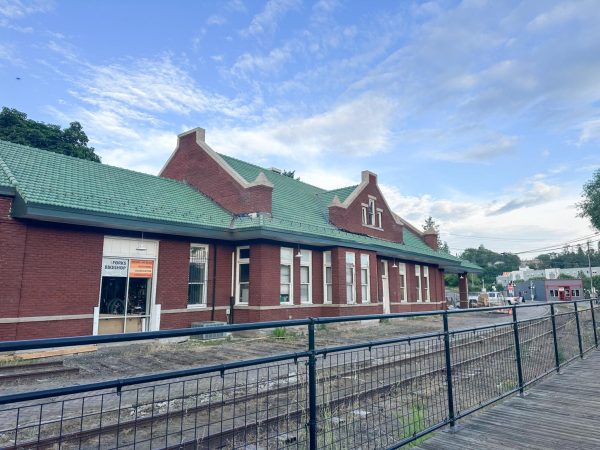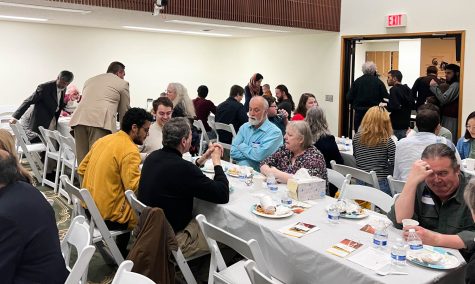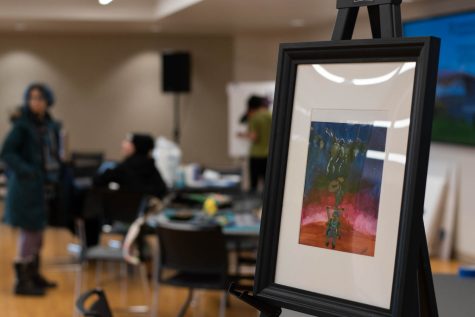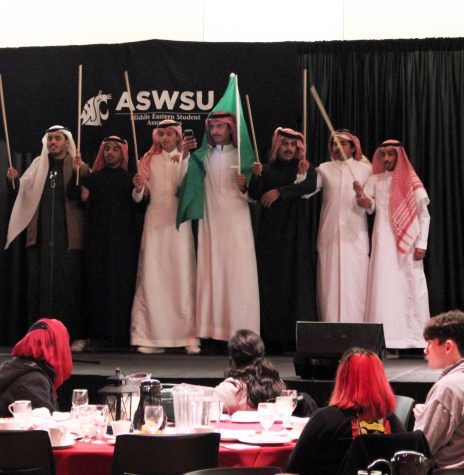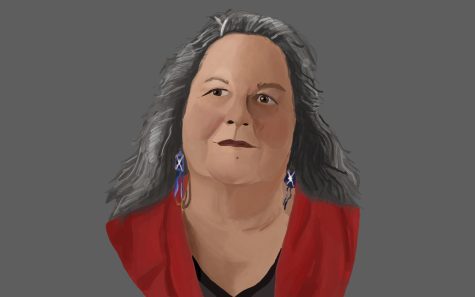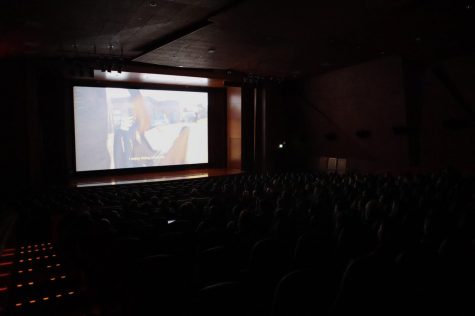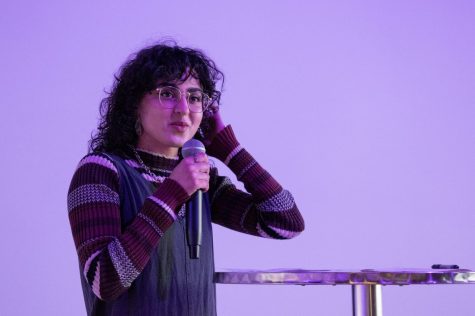Switching viewpoints; A WWII story
September 17, 2014
In a war-torn Europe, it may seem unbelievable that the stories of a blind French girl and an orphaned German boy could connect over something like a radio.
Author Anthony Doerr shows how in his novel “All the Light We Cannot See.” Set during World War II, the story switches viewpoints to tell the individual journeys of Marie-Laure and Werner, eventually leading to their converging in the town of Saint-Malo, France.
“I hope (readers) see it’s not a usual World War II story,” Doerr said. “Things are a little more complicated than we thought.”
Later this month, Doerr will make an appearance at the Kenworthy Performing Arts Centre in Moscow to talk about his book and the research he did in Europe to write the story. The event is put on through BookPeople of Moscow, which hosts multiple author appearance events throughout the fall and spring.
“It’s really a great experience to listen to an author read their work,” said Carol Spurling, co-owner and manager of BookPeople.
The author visits usually involve a reading from the featured book and a question-answer session. Questions range from the plot to writing in general, and the added bonus of Doerr’s presentation will be his slideshow of places he visited while doing his research for the book.
“I have always been amazed at how good of a time the people have,” Spurling said. “It just adds life to the bookstore and the community and downtown. We wouldn’t do it if it didn’t seem like the people really loved it.”
BookPeople’s author events bring both local and national authors. Some of the authors have written works related to the Palouse region.
When BookPeople first started the author appearances, the managers reached out to authors through their connection with the English department at University of Idaho. Now, they have authors contacting them and asking to come in.
“We had Anthony at our store before, so we know that he’s a really dynamic speaker and really fun to listen to,” Spurling said.
Doerr has been writing since childhood, inspired by reading books like “The Chronicles of Narnia” and wanting to try to imitate the magic.
“I just couldn’t believe (C.S. Lewis) made a complicated world like Narnia out of black marks on a page,” Doerr said. “Every writer gets a turn on at some point by reading. (It) sparks this flame inside you.”
“All the Light We Cannot See” is split into two stories that overlap. One side is Marie-Laure, who lives with her master locksmith father in a Parisian museum. At the age of 6, she goes blind, and six years later she and her father are forced to flee to Saint-Malo because of the war.
The other side is the German orphan Werner, who becomes enchanted by an old radio and soon becomes an expert at building and fixing the equipment.
The developed talent earns him an elite spot with the Hitler Youth, but a newfound realization of the cost of his intelligence forces him to travel to Saint-Malo as well.
“The whole book you know that eventually their paths are going to cross,” Spurling said. “(There’s an) incredible amount of tension that builds over how they’re going to meet and what’s going to happen.”
Radio becomes the subtle connection between the characters throughout the story.
The use of the radio was prominent in World War II, even with the resistance groups. In the story, Marie-Laure’s uncle uses a radio to transmit numbers meant to be messages to the resistance. Eventually the struggle becomes fighting back against the use of radio transmission in the war.
“The radio got me going,” Doerr said. “To hear someone’s voice but not see them.”
This kind of technology was something Hitler used to send messages to the heads of people who couldn’t think critically about it, Doerr said. It became a powerful tool for the era.
Given the setting, Doerr spent time in France and Germany to understand the layout of the land. He said he needed to know the area, how the buildings and streets and animals looked, how the people talk, and the food they ate.
He also looked through memoirs, old photographs, and visited Saint-Malo. The medieval-style town was almost entirely destroyed by the bombings in the war, but the town has been restored since then.
“(I’m gathering) data about the details of the characters’ lives,” Doerr said. “Anything that can help fill the details of the time.”
Anthony Doerr will speak at 7:30 p.m. tomorrow at the Kenworthy Performing Arts Centre, 508 S. Main St. in Moscow, ID. Tickets are $8 for general admission and $4 for students and seniors.










